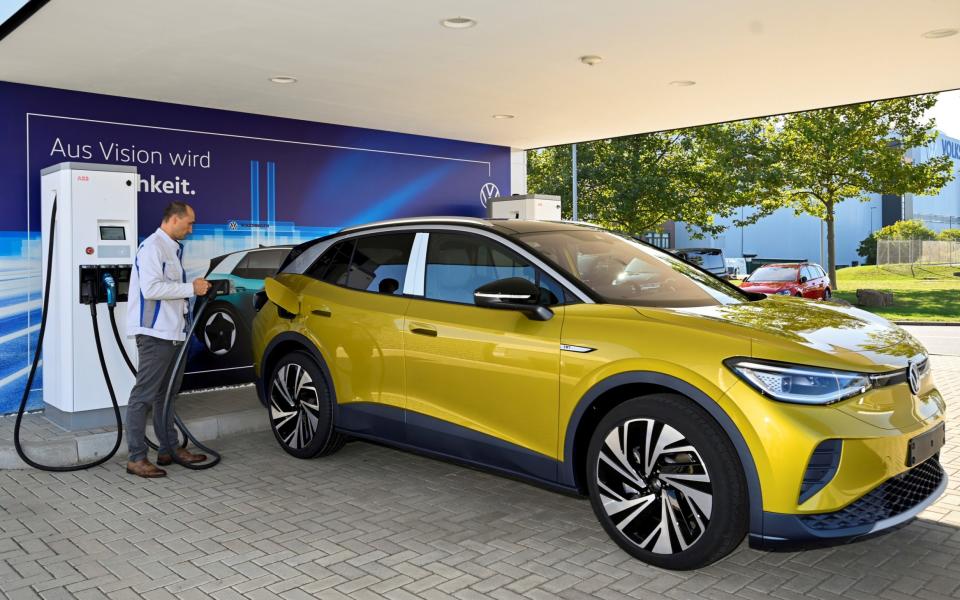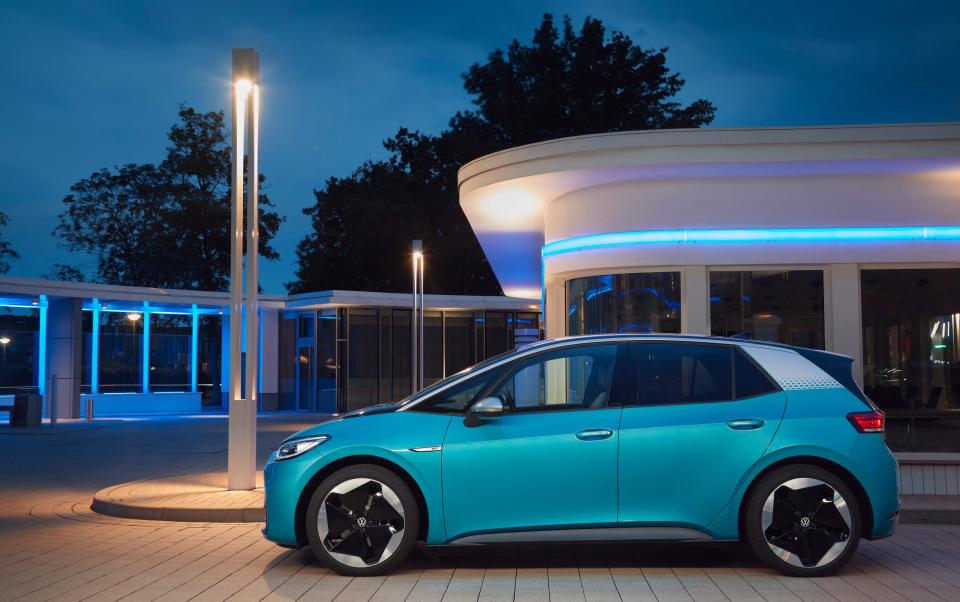Electric cars to be profitable in three years, says Volkswagen

Electric cars will be profitable within “two or three years”, according to Volkswagen's boss, while Mercedes-Benz plans to spend more than €40bn (£34bn) to electrify its range.
Herbert Diess, chief executive of the Audi, Seat, Skoda and Porsche owner, made the prediction at VW's annual meeting on Thursday.
Although the German company has never revealed the profitability of its electric models, experts believe the immense investment required to develop zero-emission models means they are unlikely to yet break even.
“We assume that our margins in e-mobility and internal combustion engine business will be at the same level in two to three years," he said.
“By 2030, the global electric vehicle market will be on par with [internal combustion] sales. Electric cars will then be much cheaper than vehicles with a [conventional engine].”
VW - which battles with Toyota for the title of the world’s biggest car maker - has pledged more than £30bn of investment into electric cars and related technology as it rushes to catch up with rivals in the wake of the 2015 “dieselgate” emissions scandal.
The market for traditional petrol and diesel cars will contract by a fifth over the coming decade, he said.
VW would cut costs by up to 7pc within two years by either switching engine plants to make electric drivetrains or closing them down.
Mercedes was late to the all-electric party and only launched the EQS, an electric version of its flagship S-Class sedan, earlier this year.
However, it will make eight all-electric cars on three continents next year, and plans three new electric vehicle platforms for 2025. It will also build eight battery factories with partners to meet its needs of more than 200 gigawatt-hours of battery capacity by 2030.
Mercedes is betting that the top of the market will switch to battery-powered vehicles faster than the mass market because its customers have greater purchasing power.
“The tipping point is getting closer and we will be ready as markets switch to electric-only by the end of this decade,” said the chief executive, Ola Kallenius. “This step marks a profound reallocation of capital.”
Professor David Bailey, a car industry expert at Birmingham University, said: “While VW might now be struggling to make money on electric vehicles sales given the high development costs, that should change as economies of scale kick in.”
VW has introduced a swathe of new electric vehicles, such as the ID.3 mid-size hatchback and ID.4 SUV, and now claims to be the biggest player in the European sector.

It sold 171,000 all-electric vehicles in the first half of the year to give it a 26pc market share in Europe.
VW's total global sales in the first six months of the year rose 27.9pc to 5m vehicles.
Signalling the importance of electric vehicles to VW’s strategy, Mr Diess called electric vehicles “the only way we can significantly reduce CO2 emissions in the next 10 years”.
Meanwhile, Mercedes also announced a deal to buy UK electric motors start-up Yasa, saying that the Oxford-based company's advanced technology would help it stay "a step ahead of the competition".
Yasa has been working with Mercedes since 2019, and chief executive Chris Harris said it "was always clear that we shared the same commitment to engineering excellence, innovation and reshaping mobility for the electric age".
Terms of the deal were not revealed but Yasa, which was spun out of Oxford University a decade ago, has previously been valued at more than £100m.
Yasa's 250 staff will continue to work from the company's UK base and supply their axial flux motors, which are more efficient than mainstream technology, to existing customers such as Ferrari.
South Korean car maker Hyundai also revealed plans for a dozen new electric models by 2025, but warned the global shortage of computer chips which is causing car makers to halt production as supplies dry up will affect its performance later this year.
Separately, electric vehicle charging points will be installed at Waitrose shops as the supermarket chain expands its partnership with Shell.
The oil giant will install up to 800 charging points at 100 Waitrose stores by 2025.
Each site will have six 22kW and two 50kW rapid charging points so drivers can recharge vehicles while they shop.

 Yahoo Finance
Yahoo Finance 